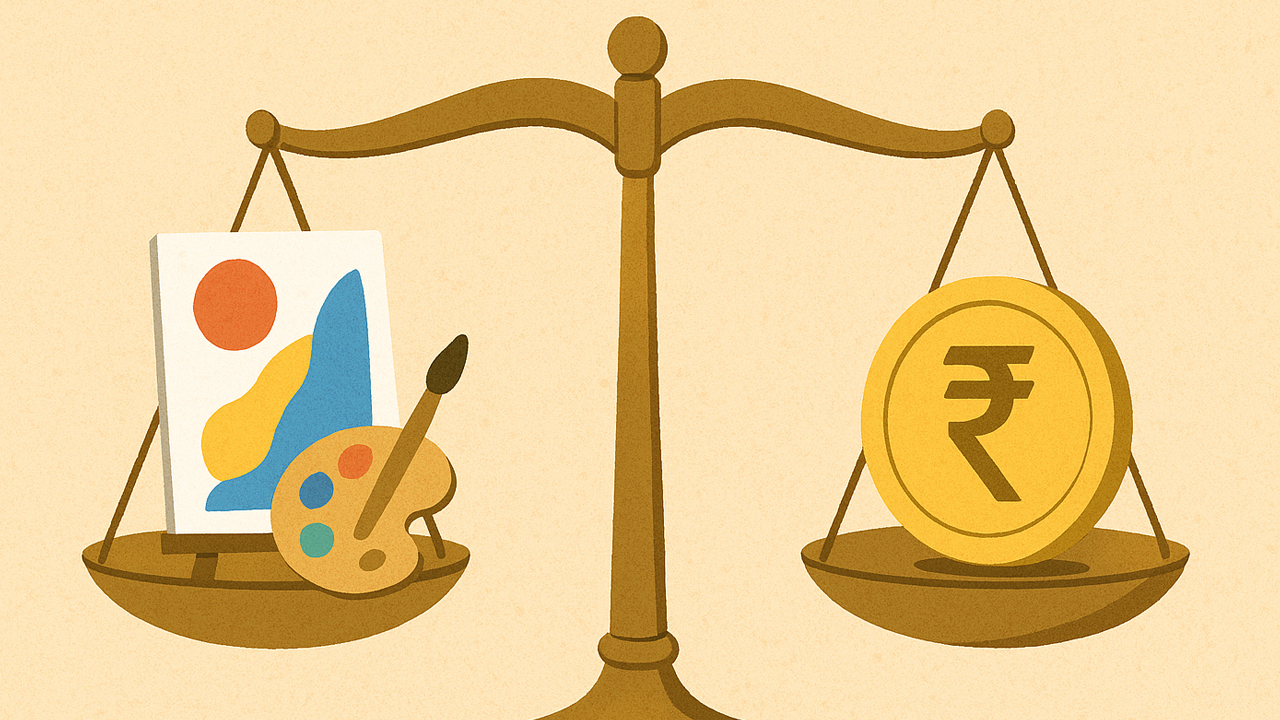
Artists often shy away from talking about money — as if asking for what they deserve somehow corrupts the purity of their art. But whatever you do, remember this — you deserve compensation for your work. Don’t hesitate to ask for what you’re worth.
This has been my recent learning. Not a theoretical one — but something shaped by real experiences, a few uncomfortable moments, and some deeply insightful conversations with people like Jay Bhatt and Siddharth Bhavsar.
We talk endlessly about art, value, and purpose. But money — that word still makes us uneasy. And that’s the irony. We create immense value for others, yet struggle to assign value to ourselves. As artists, we are wired to believe that purity of intent and practicality cannot coexist. That the moment we start talking numbers, something in our art gets tainted. But it doesn’t. It actually dignifies the work. Because when you respect your art enough to demand fair compensation, you don’t just uplift yourself — you shift the standard for everyone who comes after you. You tell the world that creativity isn’t a free resource, and intent doesn’t replace effort.
I’ll admit — for the longest time, I disliked the idea of artist representation. I didn’t want someone to speak for me. And I never enjoyed dealing with agents or managers representing the artists I wanted to collaborate with. It felt cold, transactional, unnecessary. But over time, I’ve realized that these are the people who form the necessary boundary between emotion and exploitation. Agents and representatives exist because the world often takes an artist’s humility as consent. They negotiate when you hesitate. They protect the part of you that gives too freely. And they remind you — your passion is not free labour.
History has shown us what happens when brilliance meets poor valuation.
Nikola Tesla, the man who lit up the modern world, died alone and broke — because he couldn’t negotiate his rightful share with those who profited from his genius.
Vincent van Gogh painted eternity, but sold only one painting while he lived.
And in our own world, Guru Dutt — an artist who was far ahead of his time — never saw his work valued the way it deserved to be.
On the other side are those who understood the power of value. Picasso refused to let anyone dictate his price.
Taylor Swift reclaimed her music masters and rewrote the rules of ownership in her industry.
Christopher Nolan walked away from studios until they agreed to his terms — and that’s precisely why he now creates exactly what he envisions, at the scale he envisions it. It’s not arrogance. It’s clarity. A quiet understanding that your art is also your livelihood — and both deserve respect.
So yes, create with all your heart. But protect what you create with equal conviction. Because we are not just artists — we are creators of intellectual property. And that property must be valued — not sentimentally, but fairly and fully.